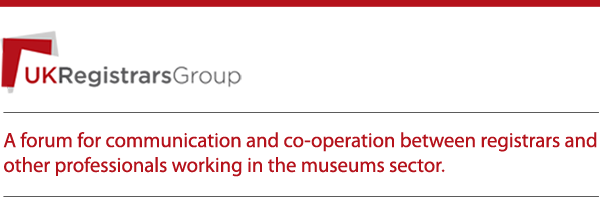Building on the earlier sessions, Lyn Wall continued to run
through the Courier Training Framework document.
Arrival
Arriving at the destination was discussed and some key top tips suggested:
- If arriving at an airport you would usually be met by a transport agent to be taken to witness de-palletisation – sometimes at the aircraft door or in the arrivals hall.
- Don’t declare the shipment as personal goods as it is cargo!
- If you are couriering on a Ferry don’t expect to stay with the vehicle/object - you are not allowed to stay in the car deck for health and safety reasons.
At the venue
- · Be prepared to work in an unfamiliar environment with a new team.
- · Be confident but diplomatic.
- · When supervising unloading be alert to any hazards (busy roads, weather etc) and respond appropriately (ask for polythene if raining, ask for hi-vis jackets, extra equipment).
- · If the work is being securely stored prior to installation check the arrangements are suitable and then make sure you understand what time and where you need to report back for installation.
- · Upon installation preparation is key! Do you have a clean and safe space to unpack, do you have the right tools, do you have the right paperwork? Use your common sense and never be reluctant to ask a question!
·
Remember you should have the support of your
colleagues at home if you need it.
Dealing with the
unexpected
Lyn explained that a good way to check whether the courier
training had been successful was to run through the scenarios provided in the
pack. By using the interactive element
of the training it is possible to sense what areas learners might need extra
support with.
During discussions about the scenarios with the UKRG
audience some recurring messages emerged:
- · Communication is the key!
- · Raise issues early, speak up if not happy but also offer solutions.
- · It is important not to have any restrictions about your trip – don’t organise personal appointments that might impact on your role as a courier.
- · The object is the priority.
There was useful discussion with the transport agents in the room about
loose loading (when packing crates were not loaded into an aircraft on pallets
or containers). It was generally felt that this should be avoided but important
to take advice. Some organisations might have a policy that it was never
acceptable but other museums might allow it depending on the object and
circumstance.
The discussion reiterated the recurring theme of the day that the
framework was a flexible tool that had elements that could be tailored to each
organisation. This has made it an incredibly useful document to follow
producing a standardised approach to courier training.
Alice
Rymill, Registrar, Bristol Culture: Bristol Museums and Art Gallery

No comments:
Post a Comment